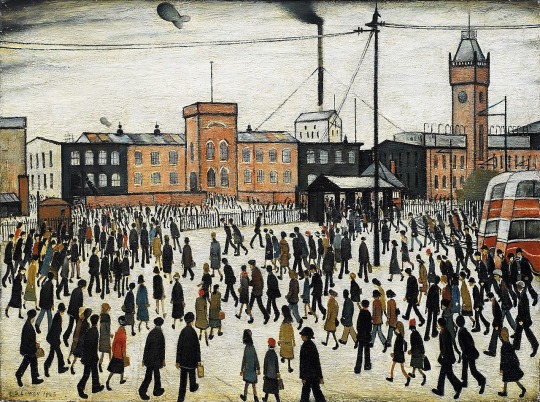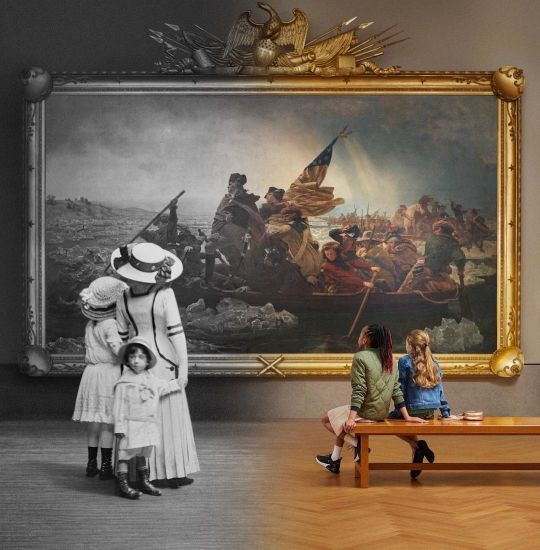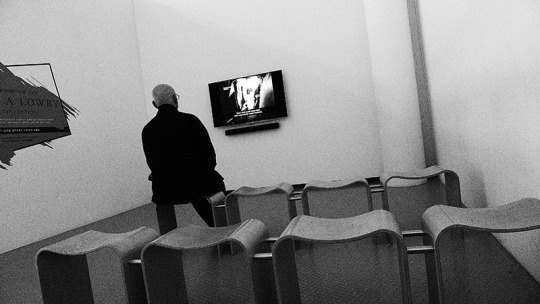#Lowry
Text

Laurence Stephen Lowry, "Going to Work", 1943
421 notes
·
View notes
Text

the famous Steve Lowry sit. mystery of the druids is definitely the most game ever
46 notes
·
View notes
Text

almost burnt me fucking lentils because i got distracted with the scotland yard boys
31 notes
·
View notes
Text
ONCE-IN-A-LIFETIME STREAM IS HERE!
in less than 1 hour me & Ellie will do the THE MYSTERY OF THE DRUIDS DRINKING STREAM!
we've planned this stream for over a year, it's a very special game for the two of us, hope you will enjoy it too!
youtube
36 notes
·
View notes
Photo

That's why we have the Museum, Matty, to remind us of how we came, and why: to start fresh, and begin a new place from what we had learned and carried from the old.
- Lois Lowry, Messenger
Admiring the portrait 'George Washington Crossing the Delaware', by Emanuel Leutzes, in 1905 on the left and 2020 on the right.
#lowry#lois lowry#literature#quote#art#museum#painting#arts#tradition#heritage#past and present#society#history
125 notes
·
View notes
Text

LOWRY - "Don't humour me, Halligan. You don't know a thing about suits."
40 notes
·
View notes
Text


cinematic parallels
43 notes
·
View notes
Text
“Whatever the enormous complexities and challenges of bringing about this future, one truth should be obvious among decent people: killing 1,400 people and kidnapping more than 200, including scores of civilians, was deeply wrong. The Hamas attack resembled a medieval Mongol raid for slaughter and human trophies—except it was recorded in real time and published to social media. Yet since October 7, Western academics, students, artists, and activists have denied, excused, or even celebrated the murders by a terrorist sect that proclaims an anti-Jewish genocidal program. Some of this is happening out in the open, some behind the masks of humanitarianism and justice, and some in code, most famously “from the river to the sea,” a chilling phrase that implicitly endorses the killing or deportation of the 9 million Israelis. It seems odd that one has to say: Killing civilians, old people, even babies, is always wrong. But today say it one must.
How can educated people justify such callousness and embrace such inhumanity? All sorts of things are at play here, but much of the justification for killing civilians is based on a fashionable ideology, “decolonization,” which, taken at face value, rules out the negotiation of two states—the only real solution to this century of conflict—and is as dangerous as it is false.
I always wondered about the leftist intellectuals who supported Stalin, and those aristocratic sympathizers and peace activists who excused Hitler. Today’s Hamas apologists and atrocity-deniers, with their robotic denunciations of “settler-colonialism,” belong to the same tradition but worse: They have abundant evidence of the slaughter of old people, teenagers, and children, but unlike those fools of the 1930s, who slowly came around to the truth, they have not changed their views an iota. The lack of decency and respect for human life is astonishing: Almost instantly after the Hamas attack, a legion of people emerged who downplayed the slaughter, or denied actual atrocities had even happened, as if Hamas had just carried out a traditional military operation against soldiers. October 7 deniers, like Holocaust deniers, exist in an especially dark place.
The decolonization narrative has dehumanized Israelis to the extent that otherwise rational people excuse, deny, or support barbarity. It holds that Israel is an “imperialist-colonialist” force, that Israelis are “settler-colonialists,” and that Palestinians have a right to eliminate their oppressors. (On October 7, we all learned what that meant.) It casts Israelis as “white” or “white-adjacent” and Palestinians as “people of color.”
This ideology, powerful in the academy but long overdue for serious challenge, is a toxic, historically nonsensical mix of Marxist theory, Soviet propaganda, and traditional anti-Semitism from the Middle Ages and the 19th century. But its current engine is the new identity analysis, which sees history through a concept of race that derives from the American experience. The argument is that it is almost impossible for the “oppressed” to be themselves racist, just as it is impossible for an “oppressor” to be the subject of racism. Jews therefore cannot suffer racism, because they are regarded as “white” and “privileged”; although they cannot be victims, they can and do exploit other, less privileged people, in the West through the sins of “exploitative capitalism” and in the Middle East through “colonialism.”
This leftist analysis, with its hierarchy of oppressed identities—and intimidating jargon, a clue to its lack of factual rigor—has in many parts of the academy and media replaced traditional universalist leftist values, including internationalist standards of decency and respect for human life and the safety of innocent civilians. When this clumsy analysis collides with the realities of the Middle East, it loses all touch with historical facts.
Indeed, it requires an astonishing leap of ahistorical delusion to disregard the record of anti-Jewish racism over the two millennia since the fall of the Judean Temple in 70 C.E. After all, the October 7 massacre ranks with the medieval mass killings of Jews in Christian and Islamic societies, the Khmelnytsky massacres of 1640s Ukraine, Russian pogroms from 1881 to 1920—and the Holocaust. Even the Holocaust is now sometimes misconstrued—as the actor Whoopi Goldberg notoriously did—as being “not about race,” an approach as ignorant as it is repulsive.
Contrary to the decolonizing narrative, Gaza is not technically occupied by Israel—not in the usual sense of soldiers on the ground. Israel evacuated the Strip in 2005, removing its settlements. In 2007, Hamas seized power, killing its Fatah rivals in a short civil war. Hamas set up a one-party state that crushes Palestinian opposition within its territory, bans same-sex relationships, represses women, and openly espouses the killing of all Jews.
Very strange company for leftists.
(…)
The toxicity of this ideology is now clear. Once-respectable intellectuals have shamelessly debated whether 40 babies were dismembered or some smaller number merely had their throats cut or were burned alive. Students now regularly tear down posters of children held as Hamas hostages. It is hard to understand such heartless inhumanity. Our definition of a hate crime is constantly expanding, but if this is not a hate crime, what is? What is happening in our societies? Something has gone wrong.
In a further racist twist, Jews are now accused of the very crimes they themselves have suffered. Hence the constant claim of a “genocide” when no genocide has taken place or been intended. Israel, with Egypt, has imposed a blockade on Gaza since Hamas took over, and has periodically bombarded the Strip in retaliation for regular rocket attacks. After more than 4,000 rockets were fired by Hamas and its allies into Israel, the 2014 Gaza War resulted in more than 2,000 Palestinian deaths. More than 7,000 Palestinians, including many children, have died so far in this war, according to Hamas. This is a tragedy—but this is not a genocide, a word that has now been so devalued by its metaphorical abuse that it has become meaningless.
(…)
Although there is a strong instinct to make this a Holocaust-mirroring “genocide,” it is not: The Palestinians suffer from many things, including military occupation; settler intimidation and violence; corrupt Palestinian political leadership; callous neglect by their brethren in more than 20 Arab states; the rejection by Yasser Arafat, the late Palestinian leader, of compromise plans that would have seen the creation of an independent Palestinian state; and so on. None of this constitutes genocide, or anything like genocide. The Israeli goal in Gaza—for practical reasons, among others—is to minimize the number of Palestinian civilians killed. Hamas and like-minded organizations have made it abundantly clear over the years that maximizing the number of Palestinian casualties is in their strategic interest. (Put aside all of this and consider: The world Jewish population is still smaller than it was in 1939, because of the damage done by the Nazis. The Palestinian population has grown, and continues to grow. Demographic shrinkage is one obvious marker of genocide. In total, roughly 120,000 Arabs and Jews have been killed in the conflict over Palestine and Israel since 1860. By contrast, at least 500,000 people, mainly civilians, have been killed in the Syrian civil war since it began in 2011.)
(…)
At the heart of decolonization ideology is the categorization of all Israelis, historic and present, as “colonists.” This is simply wrong. Most Israelis are descended from people who migrated to the Holy Land from 1881 to 1949. They were not completely new to the region. The Jewish people ruled Judean kingdoms and prayed in the Jerusalem Temple for a thousand years, then were ever present there in smaller numbers for the next 2,000 years. In other words, Jews are indigenous in the Holy Land, and if one believes in the return of exiled people to their homeland, then the return of the Jews is exactly that. Even those who deny this history or regard it as irrelevant to modern times must acknowledge that Israel is now the home and only home of 9 million Israelis who have lived there for four, five, six generations.
Most migrants to, say, the United Kingdom or the United States are regarded as British or American within a lifetime. Politics in both countries is filled with prominent leaders—Suella Braverman and David Lammy, Kamala Harris and Nikki Haley—whose parents or grandparents migrated from India, West Africa, or South America. No one would describe them as “settlers.” Yet Israeli families resident in Israel for a century are designated as “settler-colonists” ripe for murder and mutilation. And contrary to Hamas apologists, the ethnicity of perpetrators or victims never justifies atrocities. They would be atrocious anywhere, committed by anyone with any history. It is dismaying that it is often self-declared “anti-racists” who are now advocating exactly this murder by ethnicity.
Those on the left believe migrants who escape from persecution should be welcomed and allowed to build their lives elsewhere. Almost all of the ancestors of today’s Israelis escaped persecution.
(…)
Even more preposterous than the “colonizer” label is the “whiteness” trope that is key to the decolonization ideology. Again: simply wrong. Israel has a large community of Ethiopian Jews, and about half of all Israelis—that is, about 5 million people—are Mizrahi, the descendants of Jews from Arab and Persian lands, people of the Middle East. They are neither “settlers” nor “colonialists” nor “white” Europeans at all but inhabitants of Baghdad and Cairo and Beirut for many centuries, even millennia, who were driven out after 1948.
(…)
In this brutal war, Israelis did indeed drive some Palestinians from their homes; others fled the fighting; yet others stayed and are now Israeli Arabs who have the vote in the Israeli democracy. (Some 25 percent of today’s Israelis are Arabs and Druze.) About 700,000 Palestinians lost their homes. That is an enormous figure and a historic tragedy. Starting in 1948, some 900,000 Jews lost their homes in Islamic countries and most of them moved to Israel. These events are not directly comparable, and I don’t mean to propose a competition in tragedy or hierarchy of victimhood. But the past is a lot more complicated than the decolonizers would have you believe.
(…)
The open world of liberal democracies—or the West, as it used to be called—is today polarized by paralyzed politics, petty but vicious cultural feuds about identity and gender, and guilt about historical successes and sins, a guilt that is bizarrely atoned for by showing sympathy for, even attraction to, enemies of our democratic values. In this scenario, Western democracies are always bad actors, hypocritical and neo-imperialist, while foreign autocracies or terror sects such as Hamas are enemies of imperialism and therefore sincere forces for good. In this topsy-turvy scenario, Israel is a living metaphor and penance for the sins of the West. The result is the intense scrutiny of Israel and the way it is judged, using standards rarely attained by any nation at war, including the United States.
But the decolonizing narrative is much worse than a study in double standards; it dehumanizes an entire nation and excuses, even celebrates, the murder of innocent civilians. As these past two weeks have shown, decolonization is now the authorized version of history in many of our schools and supposedly humanitarian institutions, and among artists and intellectuals. It is presented as history, but it is actually a caricature, zombie history with its arsenal of jargon—the sign of a coercive ideology, as Foucault argued—and its authoritarian narrative of villains and victims. And it only stands up in a landscape in which much of the real history is suppressed and in which all Western democracies are bad-faith actors. Although it lacks the sophistication of Marxist dialectic, its self-righteous moral certainty imposes a moral framework on a complex, intractable situation, which some may find consoling. Whenever you read a book or an article and it uses the phrase “settler-colonialist,” you are dealing with ideological polemic, not history.
(…)
Even when the word decolonization does not appear, this ideology is embedded in partisan media coverage of the conflict and suffuses recent condemnations of Israel. The student glee in response to the slaughter at Harvard, the University of Virginia, and other universities; the support for Hamas amongst artists and actors, along with the weaselly equivocations by leaders at some of America’s most famous research institutions, have displayed a shocking lack of morality, humanity, and basic decency.
(…)
Since its founding in 1987, Hamas has used the murder of civilians to spoil any chance of a two-state solution. In 1993, its suicide bombings of Israeli civilians were designed to destroy the two-state Olso Accords that recognized Israel and Palestine. This month, the Hamas terrorists unleashed their slaughter in part to undermine a peace with Saudi Arabia that would have improved Palestinian politics and standard of life, and reinvigorated Hamas’s sclerotic rival, the Palestinian Authority. In part, they served Iran to prevent the empowering of Saudi Arabia, and their atrocities were of course a spectacular trap to provoke Israeli overreaction. They are most probably getting their wish, but to do this they are cynically exploiting innocent Palestinian people as a sacrifice to political means, a second crime against civilians. In the same way, the decolonization ideology, with its denial of Israel’s right to exist and its people’s right to live safely, makes a Palestinian state less likely if not impossible.
(…)
Again, scholars, teachers, and our civil society, and the institutions that fund and regulate universities and charities, need to challenge a toxic, inhumane ideology that has no basis in the real history or present of the Holy Land, and that justifies otherwise rational people to excuse the dismemberment of babies.
(…)
The Palestinians have legitimate grievances and have endured much brutal injustice. But both of their political entities are utterly flawed: the Palestinian Authority, which rules 40 percent of the West Bank, is moribund, corrupt, inept, and generally disdained—and its leaders have been just as abysmal as those of Israel.
Hamas is a diabolical killing sect that hides among civilians, whom it sacrifices on the altar of resistance—as moderate Arab voices have openly stated in recent days, and much more harshly than Hamas’s apologists in the West. “I categorically condemn Hamas’s targeting of civilians,” the Saudi veteran statesman Prince Turki bin Faisal movingly declared last week. “I also condemn Hamas for giving the higher moral ground to an Israeli government that is universally shunned even by half of the Israeli public … I condemn Hamas for sabotaging the attempt of Saudi Arabia to reach a peaceful resolution to the plight of the Palestinian people.” In an interview with Khaled Meshaal, a member of the Hamas politburo, the Arab journalist Rasha Nabil highlighted Hamas’s sacrifice of its own people for its political interests. Meshaal argued that this was just the cost of resistance: “Thirty million Russians died to defeat Germany,” he said.
Nabil stands as an example to Western journalists who scarcely dare challenge Hamas and its massacres. Nothing is more patronizing and even Orientalist than the romanticization of Hamas’s butchers, whom many Arabs despise. The denial of their atrocities by so many in the West is an attempt to fashion acceptable heroes out of an organization that dismembers babies and defiles the bodies of murdered girls. This is an attempt to save Hamas from itself. Perhaps the West’s Hamas apologists should listen to moderate Arab voices instead of a fundamentalist terror sect.
Hamas’s atrocities place it, like the Islamic State and al-Qaeda, as an abomination beyond tolerance. Israel, like any state, has the right to defend itself, but it must do so with great care and minimal civilian loss, and it will be hard even with a full military incursion to destroy Hamas. Meanwhile, Israel must curb its injustices in the West Bank—or risk destroying itself—because ultimately it must negotiate with moderate Palestinians.
(…)
In the wider span of history, sometimes terrible events can shake fortified positions: Anwar Sadat and Menachem Begin made peace after the Yom Kippur War; Yitzhak Rabin and Yasser Arafat made peace after the Intifada. The diabolical crimes of October 7 will never be forgotten, but perhaps, in the years to come, after the scattering of Hamas, after Netanyahuism is just a catastrophic memory, Israelis and Palestinians will draw the borders of their states, tempered by 75 years of killing and stunned by one weekend’s Hamas butchery, into mutual recognition. There is no other way.”
“The idea in this case is “settler colonialism,” a term that appears often in the pro-Hamas statements collected by the Anti-Defamation League. Various chapters of the Democratic Socialists of America have decried “settler-colonial, Zionist apartheid” and called to “decolonize Palestine—from the river to the sea,” a slogan that, by invoking the Jordan River and the Mediterranean, calls for the elimination of the state of Israel. Mondoweiss, an anti-Israel online publication, has called the Hamas attack “part of the Palestinians’ century-long struggle for liberation” from “Zionist/Israeli settler colonialism.”
Like all theoretical terms, “settler colonialism” can mean different things to different people. But most who use it would probably agree with the definition offered by Cornell Law School’s Legal Information Institute: “a system of oppression based on genocide and colonialism, that aims to displace a population of a nation (oftentimes indigenous people) and replace it with a new settler population.” The paradigm case is the European colonization of the Americas, where over centuries many indigenous peoples were displaced or killed as Europeans took their land.
(…)
What makes settler colonialism a potent political concept is that, as the Cornell definition says, it is “a system rather than a historical event.” In other words, the displacement of the indigenous population is not something that happened centuries ago but something that is still being perpetrated today, by all the non-indigenous inhabitants of the land and by the culture and institutions they have created.
The Southern Poverty Law Center makes this point clearly in its magazine Learning for Justice: “Understanding settler-colonialism means understanding that all non-Indigenous people are settler-colonizers, whether they were born here or not. Understanding settler-colonialism as both a historical position and a present-day practice helps students see how they fit into a settler-colonial system—and how that system shapes the impact of their actions, regardless of their intent.”
This principle makes today’s anticolonial ideology more radical than the anticolonial movements of the post-World War II era. At that time, national liberation struggles in Africa and Asia were directed mainly against European powers that did not settle the territories they ruled. When the Viet Minh fought the French in Vietnam, or the Congolese National Movement fought the Belgians in Congo, they wanted to reclaim national sovereignty from foreign rulers who had no connection to the country other than the right of conquest.
Freeing a settler-colonial society is a very different prospect, since it would presumably mean expelling many millions of people who were born in the land they are said to have colonized. Modern Jewish settlement in what is now Israel began in the 1880s, English settlement of North America in the 1600s. If the descendants of those first arrivals are still considered settlers in 2023, then the word no longer has its ordinary meaning. Instead it is a permanent, inheritable marker of guilt, like “bourgeois” as a class label in the Soviet Union.
Under the workers’ regime, a bourgeois was not a person who owned a certain amount of property, but anyone whose background indicated that they might be hostile to the working class. That put them outside the realm of moral concern, and they could be killed for any reason or none. The reaction of many anticolonial activists to the massacre of Israelis suggests that a similar logic is at work today.
Even advocates of anticolonial ideology know that there is no prospect of actually “decolonizing” the U.S. The most they hope for is symbolic expressions like Native American land acknowledgments, which have become standard practice at many academic and arts institutions. These statements are often historically ill-informed, but they are not really about historical facts. They advance a political thesis: that in a just world, every territory would be occupied only by the people who belong there.
Ironically, while anticolonialism conceives of itself as a progressive, left-wing ideology, this understanding of the relationship between people and land is similar to that of fascism, which was also obsessed with the categories of native and alien. The Nazi slogan “blood and soil” conveyed the idea that German land could only truly belong to its primeval inhabitants.
Anticolonialists would of course reject this analogy. But they are proudly indebted to Frantz Fanon, the Martinique-born French writer whose analysis of anticolonial struggle was born from the Algerian rebellion against French rule in the 1950s. For Fanon, a psychologist, anticolonial movements must be violent, not only because they lack other means of achieving their goals but because violence itself is redemptive and therapeutic. “The colonized man finds his freedom in and through violence,” Fanon wrote in his classic 1961 book “The Wretched of the Earth.” “For the colonized people this violence, because it constitutes their only work, invests their characters with positive and creative qualities.”
When Western sympathizers excuse or endorse the actions of Hamas, it is because they see it in these terms, as a liberation movement fighting a settler-colonial regime. And it is true that Hamas frames its struggle in terms of indigenous rights and redemptive violence—though sympathizers usually overlook the fact that it understands these things in religious fundamentalist terms, which are totally incompatible with other left-wing commitments like LGBTQ rights.
The group’s charter, adopted in 1988, declares that only Muslims are indigenous to the land that is now Israel, so Jews can never belong there: “The land of Palestine is an Islamic endowment consecrated for future Muslim generations until Judgment Day.” Likewise, it states that “peaceful solutions…are in contradiction to the principles of the Islamic Resistance Movement” and that “there is no solution for the Palestinian question except through Jihad.”
Hatred of settler colonialism, like hatred of capitalism among communist revolutionaries, believes that it is morally impeccable because it is grounded in genuinely moral instincts: indignation at violence and oppression, hope for freedom and equality. It seems perverse that such instincts should lead to approving the mass murder of children and the elderly.
But like other totalizing ideologies, anticolonialism contains all the elements needed for moral derangement: the permanent division of the world into innocent people and guilty people; the belief that history can be fixed once and for all, if violence is applied in the right way; the idea that the world is a battlefield and everyone is a combatant, whether they realize it or not.
Most observers of the conflict in Israel-Palestine, regardless of whose “side” they are on, don’t fall into these traps. But those who do are increasingly vocal—a bad sign for the future of peaceful coexistence, and not only in the Middle East.”
“Since the “decolonization” agenda is meant only to target Western nations and peoples, you rarely hear of the conquests and empire-building of the non-Western world, which is conveniently forgotten behind a narrative of pervasive victimization.
All of human history is a story of never-ending layers of conquest and defeat and of migration and exile. If it were to be undone, we’d need to extirpate almost all peoples everywhere, including those who are currently portrayed as the hopelessly oppressed.
The earliest phase of the seventh-century Arab expansion was truly explosive, and then it continued at a slower but still impressive clip.
Indeed, it is one of the most sweeping acts of conquest and successful exercises in colonialism in world history. This wasn’t the Mongols driving all before them and then receding to leave little in their trace, or the Normans getting absorbed into the England they conquered. No, the Arabs followed up their military conquest with a cultural imperialism still felt today.
The Arabs would gobble up Syria, Palestine, Egypt, and Mesopotamia. They chipped away at the Byzantine Empire and launched a no-kidding effort to conquer it wholesale that fell short after two epic sieges of Constantinople. They basically took all of the Persian empire. Eventually, they assembled an empire with the greatest territorial extent since the Romans, encompassing 80 percent of the population of the Middle East and North Africa and reaching to the south of France.
(…)
Its armies “appeared everywhere from central Asia, through the Middle East and north Africa, throughout the Visigothic Iberian Peninsula, and even into southern France.” Everywhere they conquered, they put in place “Islamic governments and introduced new ways of living, trading, learning, thinking, building, and praying.”
And of speaking and writing. The caliph Abd al-Malik imposed Arabic as the official language of the empire, an act of the highest cultural significance, since Arabic and Islam were so intertwined. “Arabization,” Jones writes, “was gradually followed by conversion across the Muslim-held territories—a shift that can still be seen, felt, and heard in almost every part of the old caliphate in the twenty-first century.”
Once they had Islam foisted on them, these territories, by and large, never went back, except in the cases of Spain, Portugal, and Sicily.
In the Levant, in particular, as the archaeologist and historian Alex Joffe writes, there was an imperial project that included bringing in new people. Settlers came of their own volition or were moved there by political authorities, Joffe notes, including Egyptians in the early 19th century and Chechens, Circassians, and Turkmen at the hands of the Ottomans later in the century.
A Hamas official once said, “Half of the Palestinians are Egyptians and the other half are Saudis.”
Should all this shuffling of population be reversed? Should the land conquered by the Arabs so long ago go back to the Byzantines or Persians, or their legatees? What do Ben and Jerry think?
Obviously, the decolonizers don’t care about any of this, or the fate of the Kurds, Assyrians, and Amazighs, peoples who have suffered more recently from the Arabization of the broader region.
What they really favor is another act of Arab colonization to eliminate the Jewish people, who must succumb, finally and completely, to the long tide of Islamization and Arabization “from the river to the sea.” This isn’t a principled adherence to the rights of indigenous people or a respect for ancient homelands, but Lenin’s notorious formulation, “who whom,” in a different context.”
#israel#gaza#hamas#palestine#war#antisemitism#anti zionisim#racism#wokeism#decolonisation#montefiore#simon sebag montefiore#Lowry#rich lowry#settler colonialism#fanon#franz fanon#marx#karl marx
9 notes
·
View notes
Photo

Lowry Bridge as seen from an island on the Mississippi River in Minneapolis, Minnesota.
#Bridge#Cityscape#Graffiti#Island#Long Exposure#Lowry#Lowry Bridge#Minneapolis#Minnesota#Mississippi#RIVER#Skyline
36 notes
·
View notes
Text
Grazie a Basquiat, Bruegel il Vecchio, Repin, Bosch, Caravaggio, Annella di Massimo, de Chirico, Capa, anonimo viennese, Ivanauskas, Millais, Munch1, Courbet, Munch2, Picasso, Munch3, Nolde, Munch4, Lowry, Munch5, Munch6 e Legros per le immagini, e grazie anche alla Banda Jonica per la Marcia Funebre di sottofondo.
Da
#Basquiat#Bruegel il Vecchio#Repin#Bosch#Caravaggio#Annella di Massimo#de Chirico#Capa#Ivanauskas#Millais#Courbet#Picasso#Munch3#Nolde#Lowry#munch#legros#banda jonica#art#music#arte#musica#aitan
19 notes
·
View notes
Photo


#adam lowry#iihf worlds 2022#team canada#canadian hockey men#hockey#lowry#my gif#favourite players#bby
76 notes
·
View notes
Photo



lowry and lorne sporting corsets. Lorne always looking fantastic, no matter what I draw her in
7 notes
·
View notes
Text

Love this one. I like big landscape paintings, whether they are industrial or natural.
But special mention to these two.


Last time I was here to see the art I was like 9, and I do not remember these.
2 notes
·
View notes
Text
sad that none of the L.S. Lowry blogs on here have his sketches/paintings of my hometown. girl that is my hometown's ONE claim to fame.




#having an art moment sorry y'all#but look at these!!!#that's MY town!!!!#lowry#l.s. lowry#art#me#ramblings
2 notes
·
View notes
Photo

Man watching life of L. S Lowry, The Lowry, Salford, Manchester. Tuesday, 3 May 2022.
10 notes
·
View notes
